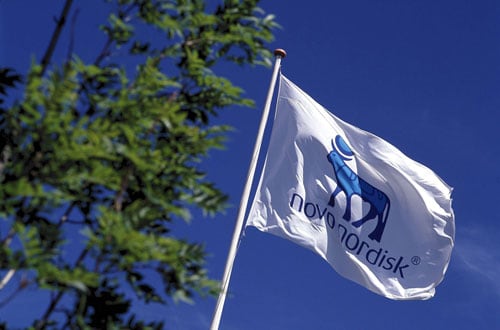
The FDA has approved new labelling for Novo Nordisk’s diabetes drug Ozempic that indicates it can reduce the risk of major adverse cardiovascular events (MACE) in type 2 diabetes patients with heart disease.
The new label claim for the once-weekly GLP-1 agonist is based on the SUSTAIN 6 cardiovascular outcomes study, which showed that Ozempic reduced the risk of cardiovascular death, non-fatal heart attack or non-fatal stroke by 26% versus placebo when added to standard of care.
“We strongly believe in the benefits of semaglutide and this approval marks an important milestone,” commented Novo Nordisk’s chief science officer Mads Krogsgaard Thomsen.
The new label should help Novo Nordisk in its ongoing marketing tussle with Eli Lilly and its weekly GLP-1 agonist Trulicity (dulaglutide), which has its own cardiovascular outcomes data in hand from the REWIND study.
That showed a 12% reduction in MACE with the GLP-1 drug, but included patients both with and without cardiovascular disease so isn’t directly comparable.
At the same time, the FDA also updated the label for Novo Nordisk’s oral formulation of semaglutide – called Rybelsus – to reflect data from the PIONEER 6 study backing its cardiovascular safety versus placebo.
Novo Nordisk is hoping that collective data from the PIONEER trials programme could help it get a cardiovascular outcomes claim for Rybelsus later this year. Otherwise, it is also conducting a dedicated cardiovascular outcomes trial for Rybelsus – SOUL – that is due to generate data in 2024.
Both Ozempic and Rybelsus are key to the future growth of Novo Nordisk’s big diabetes franchise at a time when the company as well as Lilly and other diabetes players have been losing ground in the insulin market due to pricing pressure and increased competition, particularly in the US.
EvaluatePharma has previously predicted that Ozempic could become a $2.2bn product by 2022, but other analysts think it could go even higher, perhaps reaching $3bn plus at its peak. Some market predictors think Rybelsus could go even higher if the SOUL data is competitive. For now, it’s the only GLP-1 drug on the market that can be given as a daily oral dose.
Ozempic comfortably reached blockbuster revenue levels in 2019, adding DKK 6.87bn (just over $1bn) in sales in the first nine months of the year, although Lilly remains out in front with sales of almost $3bn for Trulicity over the same period.
Rybelsus is still an unknown quantity, as it was only launched in the US at the end of the third quarter of 2019, and all eyes will be on initial take-up data in Novo Nordisk’s fourth-quarter results statement, due on 5 February.




